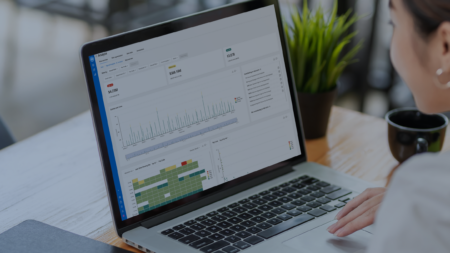Recently I was invited to participate as a speaker in the Official Monetary and Financial Institutions Forum (OMFIF) podcast focusing on Artificial Intelligence (AI) and machine learning. OMFIF is an independent think tank for central banking, economic policy, and public investment – a non-lobbying network for best practice in worldwide public-private sector exchanges. This podcast aimed to provide analysis on developments in financial technology, regulation, artificial intelligence and financial inclusion. Below is an excerpt and transcribed version of the podcast.
Interviewer: There is no single definition of artificial intelligence, and it is regularly used as shorthand to talk about everything from chatbots to deep learning. When it comes to financial services, an increasing number of companies across all sectors have been working on creating real-life AI use cases and applications for this range of technologies. The heart of the AI revolution is machine learning algorithms. Software that self-improves it, is fed more and more data. A trend that the financial industry can benefit from immensely. How has AI changed the financial service industry over the past five years and where do you see the greatest application of AI and machine learning algorithms within the financial services sector?
Robin: I think where you see AI being adopted most of all is in places where there are so many big data problems where a normal human can’t cope with the volume and the scale. So, if you take audit as an example, maybe you have a human being looking at transactions to verify if the transactions are good or not and an auditor has to come in and very quickly look at all of the transactions to find out what is going on. One of the coping mechanisms that human beings had for such a situation was doing something called sampling. They take a small set so that they can cope with the volume and verify that those transactions are okay. In that situation, we can train AI to look at every transaction and do it in real time as well, and that means that you are not building up a backlog of all transactions to verify. We can codify that human knowledge about what is a valid transaction as well, and we can do that on a vast scale which would not be possible for a human being. So, the biggest disruptive element I think is the ability to codify some degree of human intelligence into these systems and apply them at a vast scale and this is going to cause all kinds of improvements in the quality of activities like auditing. This is applicable everywhere where there’s a lot of data, and there’s a need for us to take some degree of understanding of a problem domain, train an AI system and apply it at scale.
Interviewer: The idea of collaboration is very important between tech and financial services. Robin, as someone who works within an AI company, if you will, what do you see as challenges when it comes to financial institutions adopting the new technology and is there anything that you think can be done to expedite this whole process?
Robin: I see that there are opportunities in building trust in AI and certainly I’ve seen that as one of the big issues that organizations working in the AI field really need to think about. If you think about the types of roles where AI is being used, people like financial accountants, auditors, and even lawyers are being assisted by AI these days and in that environment, quite often they have to justify their actions and what you can’t have is an AI being a black box in that scenario. What you need is an AI system that can explain its workings. I know at MindBridge we spend a lot of time thinking about, as we’re applying algorithms to the areas, how do we explain the findings so that it can support the conclusion. One of the examples is explaining why a transaction is flagged unusual or normal? We took that approach because some of our users can be asked to stand up in a court of law and justify an action that they have taken so they need all of that evidence. So, I think building AI responsibly in a way where they can explain themselves is a very big part of building trust in AI systems.
One of the often-overlooked problems for people working in AI is that they focus on the algorithm and they don’t think about the communication of the outcome. I think that’s one of the big challenges the people who are working in the AI industry need to think about. There is a lot of work going on at the moment in the AI space. Some of the deep learning technology that people are raving about has led a lot of the growth in AI. We need to think about how we take those technologies and turn them into something that the people can understand, and that non-technical people can understand as well. So, I would say that’s one of the biggest barriers to adoption.
Also, smaller firms should be working with the big companies and regulators. A lot of the new technologies are being driven by small, agile innovators and working with regulators or larger organizations helps both sides. From one side the technology matures faster and from the other side you have the awareness of the state-of-the-art, of the possibilities of such technologies are also being conveyed.
To listen to the full podcast by OMFIF, please click the link: https://www.podbean.com/media/share/pb-caaqn-72faa1




